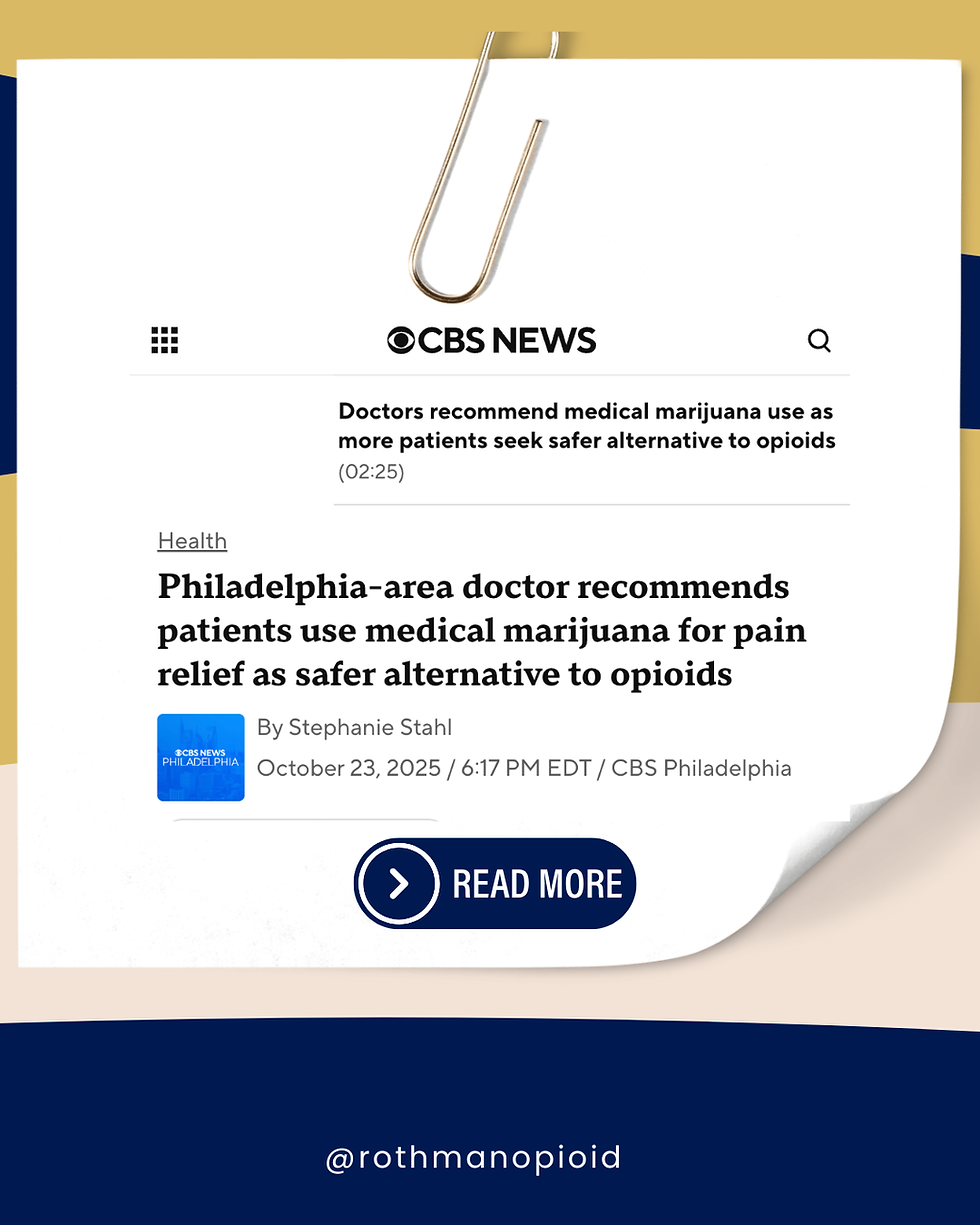DEA “Drug Take Back Day” Works. Dispose of Unused Opioid Medication on Saturday, October 23, 2021
- Rothman Opioid Foundation
- Jan 7, 2023
- 2 min read
Updated: Mar 19, 2023
By Asif Ilyas, MD, MBA, FACS
President, Rothman Orthopaedic Institute Foundation for Opioid Research and Education
Have you recently had dental work or a surgical procedure? If so, you may have been prescribed pain medication to alleviate discomfort and aid healing. But unlike in years past, patients and physicians have heightened awareness regarding opioids and their potential abuse. Today, physicians are prescribing opioids more carefully and patients are consuming these potentially addictive opioids more cautiously. However, it is still possible for patients to have leftover pain medication – which can place the patient and their friends and family at risk for abuse and addiction. Fortunately, there is an effective remedy to protect families and communities.
On Saturday, October 23, 2021, the federal Drug Enforcement Agency (DEA) will hold its semi-annual National Take Back Day. The DEA and local law enforcement officials are teaming up again to provide a safe and effective method for patients to dispose of unneeded prescription drugs. This program really works.
If the past is a prelude, this effort should be successful. Consider the April 2021 national results:
• Total Law Enforcement Participation: 4,425
• Total Collection Sites: 5,060
• Total Weight Collected: 839,543 lbs. (420 Tons)
In Pennsylvania, the April 2021 results were likewise impressive. 206 law enforcement agencies provided 255 collection sites. An astounding 35,206 pounds of opioids and stimulants were received and destroyed. That means 17.6 tons of unused legal medications were prevented from illegally reaching the streets.
The Rothman Orthopaedic Institute for Opioid Research and Education encourages everyone with excess medications to participate in this vital program. Keep your family and your community safe. Prevent legal pain medications from hitting the streets for illegal purposes. Take the opportunity to rid your household of unused prescription painkillers. To learn more or find a collection site near you, please go to Take Back Day (dea.gov).

.png)



Comments